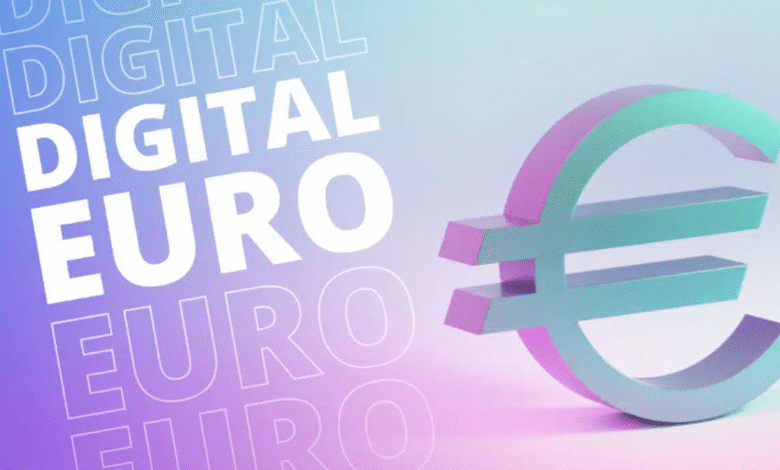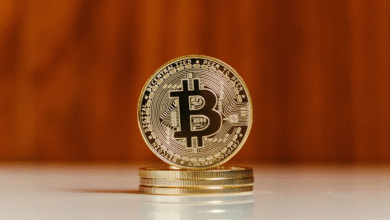Digital Euro Initiative: COTI Partners with ECB for Development

The Digital Euro is set to revolutionize the way citizens transact within the Eurozone, leveraging cutting-edge digital currency technology. Recently, the European Central Bank (ECB) chose COTI as a Pioneer Partner to spearhead the development of this central bank digital currency (CBDC). This collaboration aims to demonstrate a conditional payments system, which promises to enhance the efficiency and security of digital transactions in Europe. Alongside industry heavyweights like KPMG and Accenture, COTI is poised to innovate the necessary infrastructure for the ECB digital euro, ultimately paving the way for a seamless financial ecosystem. As we approach its anticipated launch in early 2026, the implications of the Digital Euro promise to deliver significant advancements in how we conduct financial exchanges.
The upcoming introduction of a European digital currency is not only a significant advancement for the region but also aligns with global trends toward digitization of national currencies. Often referred to as a central bank digital currency (CBDC), this initiative seeks to provide enhanced payment functionalities while ensuring financial security and privacy. As various partners collaborate under the auspices of the ECB, the focus on building a robust conditional payments system highlights a growing need for innovation in the financial sector. By integrating advanced digital currency technologies, the initiative aims to foster greater transaction efficiency and security for users throughout the Eurozone. The Digital Euro, as this transformative currency is often called, symbolizes a crucial step towards modernizing financial systems amidst rapid technological advancements.
COTI’s Role in Digital Euro Development
COTI has been selected as a Pioneer Partner by the European Central Bank (ECB) to spearhead the digital euro initiative, marking a significant step towards the launch of a Central Bank Digital Currency (CBDC) in the Eurozone. This selection underscores COTI’s expertise in digital currency technology, particularly its advanced cryptographic solutions such as garbled circuits, which are designed to enhance transaction security and privacy. By collaborating with established organizations like KPMG and Accenture, COTI aims to pave the way for a robust framework that will support not only the development of the digital euro but also the broader adoption of conditional payments systems that can facilitate instant and secure transactions across Europe.
As the digital euro project progresses, COTI’s technological innovations could become foundational elements of the ECB’s CBDC infrastructure. With privacy remaining a top concern for stakeholders in a digital finance ecosystem, COTI emphasizes that secure digital payment systems must have confidentiality embedded at their core. The collaboration with the ECB also enables COTI to leverage insights gained from its previous initiatives, like the Digital Shekel project, further enriching the development experience and producing a more comprehensive product that meets regulatory and consumer expectations.
Understanding Conditional Payments Systems
A conditional payments system is a groundbreaking feature within the realm of digital currencies, allowing transactions to be executed based on specific criteria being met. This system can greatly enhance user experience and security, especially in automated transactions where trust is crucial. Essentially, it enables parties to set conditions under which payments will be authorized, which can minimize risks and fraud. For instance, such systems can be particularly useful in e-commerce or contractual agreements, where certain milestones must be achieved before transferring funds.
The implementation of conditional payment systems as part of the digital euro framework could revolutionize how payments are processed in the EU. By working with pioneers like COTI, the ECB aims to explore not just the technical feasibility of such systems, but also practical use cases that will drive adoption. As digital currencies become more prevalent, COTI’s expertise in creating secure, efficient conditional payment mechanisms will likely play a pivotal role in shaping a future where digital transactions are governed by clear, transparent conditions, offering both users and service providers added peace of mind.
The Implications of a Digital Euro Launch in 2026
The anticipated launch of the digital euro in early 2026 holds significant implications for the European financial landscape. As Europe’s first Central Bank Digital Currency (CBDC), the digital euro aims to enhance the efficiency of the payments system while ensuring financial inclusion for all citizens. Institutions and businesses will most likely find it easier to adopt digital payment methods, leading to increased innovation within the fintech sector. With COTI at the forefront of this initiative, their contributions to digital currency technology could ensure that the digital euro is secure, user-friendly, and resilient against potential cyber threats.
Furthermore, the digital euro could potentially change how monetary policy is implemented within the Eurozone. By providing a secure and efficient form of digital currency, the ECB could have more effective tools at its disposal for managing monetary policy and ensuring economic stability. The ECB’s commitment to exploring various use cases, with the assistance of COTI and other partners, suggests a thorough understanding of the challenges and opportunities that come with introducing a digital euro. This approach will likely lead to a well-rounded, effective economic instrument that can adapt to future financial landscapes.
COTI’s Previous Experience with CBDCs
COTI’s involvement with Central Bank Digital Currencies is not limited to the digital euro project; it has previously collaborated with the Bank of Israel to develop the Digital Shekel. This project tasked COTI with creating a proof-of-concept for a decentralized marketplace capable of supporting cross-border and cross-currency transactions. The innovative use of garbled circuits allowed for on-chain confidentiality, marking a significant advancement in privacy-focused digital payments. COTI’s ability to apply these lessons from the Digital Shekel project will be instrumental in its efforts with the ECB.
By leveraging its previous experience, COTI can effectively address the complexities of digital euro implementation. The learnings from the Bank of Israel not only refine COTI’s technical approach but also enrich its strategic insights into governance, compliance, and user adoption. As the digital currency landscape continues to evolve, COTI’s proven track record with CBDCs positions it as a leader in the industry, endorsing its capabilities to deliver innovative solutions aligned with central bank objectives.
The Future of Digital Currency Technology
Digital currency technology is rapidly evolving, with innovations continuously transforming how financial transactions are conducted. As institutions like the ECB partner with industry leaders such as COTI, the groundwork for future advancements is set, promoting the development of secure, efficient, and scalable digital payment solutions. The push for widespread adoption of digital currencies suggests a move towards more automated and transparent transaction processes, ultimately benefiting consumers and businesses alike.
Emerging technologies in blockchain, secure multiparty computation, and cryptographic protocols are at the forefront of this revolution, supporting the rise of conditional payments systems. With COTI’s expertise in these areas, the potential for groundbreaking solutions that prioritize user privacy and operational efficiency is vast. Businesses and individuals will likely see a shift in their financial interactions as digital currencies continue to gain traction, transforming the landscape into one that is more accessible and technologically advanced.
Economic Impact of Digital Euro Adoption
The adoption of the digital euro is poised to have a profound economic impact across the Eurozone. By providing a digital alternative to cash, the ECB aims to streamline payment systems and enhance financial inclusivity. This could open new avenues for businesses, especially small to medium enterprises, by lowering transaction costs and facilitating quicker payments. Additionally, the increase in digital transactions is likely to foster further innovation within the European fintech ecosystem, driving the economy forward.
Moreover, the digital euro can enhance monetary policy effectiveness by providing real-time data on economic activity. This will enable the ECB to respond more efficiently to economic fluctuations and stabilize the market when needed. The implementation of a well-structured conditional payments system will not only protect consumers but also improve the overall resilience of the financial ecosystem amidst increasing challenges posed by traditional currencies and financial institutions.
Collaboration Between Public and Private Sectors
The digital euro initiative represents a significant collaboration between the public and private sectors, symbolizing an essential shift in how government institutions engage with technology and innovation. Organizations like COTI are pivotal in bridging gaps between traditional banking systems and new digital financial technologies, ensuring that the digital euro is not only compliant with regulatory standards but also meets the evolving needs of consumers. This partnership is vital in fostering an environment of trust and security in decentralized financial systems.
As more private sector players join the ECB in the development of the digital euro, their shared expertise will facilitate a faster and more comprehensive implementation. COTI, for instance, brings its blockchain experience and innovative solutions to the table, which will inform technical specifications and operational frameworks. This collaboration ensures that the digital euro project not only adheres to financial regulations but also aligns with user expectations, paving the way for widespread acceptance and successful integration into everyday transactions.
Regulatory Challenges and Solutions for CBDCs
The transition towards Central Bank Digital Currencies (CBDCs) like the digital euro is accompanied by a range of regulatory challenges that must be effectively addressed. Key issues include maintaining consumer privacy, ensuring cybersecurity, and aligning with existing financial regulations. As COTI partners with the ECB, their experience in creating privacy-focused digital currency solutions will be crucial to overcoming these hurdles while building public trust in the new financial system.
Developing a comprehensive regulatory framework will require collaboration between various stakeholders, including central banks, government authorities, and industry leaders. Efforts to create standards for security, interoperability, and user protections will be essential to enable a seamless transition to a digital euro. COTI’s role as a pioneer partner will help define these regulations and establish best practices that can ensure compliance while maximizing the benefits of new digital currency technology.
Adoption Trends for Digital Euro among Consumers
Understanding consumer adoption trends for the digital euro is essential as the ECB progresses towards its anticipated launch. Factors influencing consumer acceptance will likely include ease of use, security features, and the perceived benefits over traditional cash and payment systems. COTI’s commitment to integrating privacy and confidentiality into the digital euro framework can positively impact user confidence, ultimately fostering a smoother transition to this new form of currency.
Additionally, consumer education will play a critical role in facilitating widespread adoption of the digital euro. Ensuring that citizens understand the advantages and functionalities of this new digital currency will be key to overcoming any hesitations regarding its use. As COTI works alongside the ECB and other partners, efforts to promote awareness and accessibility will help drive engagement and acceptance as consumers begin to embrace this innovative approach to digital transactions.
Frequently Asked Questions
What is the Digital Euro and how does it relate to Central Bank Digital Currency (CBDC)?
The Digital Euro refers to the European Central Bank’s initiative to create a Central Bank Digital Currency (CBDC) that aims to complement physical cash and enhance the digital payment landscape in the Eurozone. As a CBDC, the Digital Euro will serve as a state-backed digital representation of the Euro, leveraging digital currency technology to facilitate secure and efficient transactions.
How is COTI involved in the development of the Digital Euro?
COTI has been selected by the European Central Bank (ECB) as a Pioneer Partner to help develop the technology for the Digital Euro. The partnership focuses on demonstrating the functionality of a conditional payments system, which is crucial for the smooth operation of the Digital Euro upon its expected launch in early 2026.
What role does the ECB play in the Digital Euro project?
The European Central Bank (ECB) is responsible for overseeing the Digital Euro project, which includes collaborating with selected partners like COTI to test and implement the necessary technical solutions for a Central Bank Digital Currency (CBDC). The ECB will provide technical support and specifications, guiding participants in exploring various use cases for the Digital Euro.
What is a conditional payments system and why is it important for the Digital Euro?
A conditional payments system is designed to execute transactions based on specific conditions being met. This system is particularly relevant for the Digital Euro as it enhances transaction security and efficiency in a Central Bank Digital Currency (CBDC) framework, allowing for more complex and trustworthy financial interactions within the Eurozone.
When is the Digital Euro expected to be launched?
The Digital Euro is anticipated to launch in early 2026, following the current collaboration efforts among various partners, including COTI and others, to develop its underlying technology and ensure compliance with the European Central Bank’s regulations.
What technological advancements are being utilized for the Digital Euro?
The Digital Euro will leverage advanced digital currency technology, including COTI’s innovative cryptographic protocol known as garbled circuits, which enhances privacy and security in transactions. This is essential for ensuring trust and confidentiality in the Central Bank Digital Currency (CBDC) ecosystem.
What are the benefits of the Digital Euro for businesses and consumers?
The Digital Euro will provide numerous benefits, including faster transaction speeds, increased security, and lower transaction costs. For businesses, it opens up new avenues for payment systems while giving consumers a convenient and efficient way to manage their money in a digital format.
How does COTI’s experience with CBDCs benefit the Digital Euro project?
COTI’s prior involvement with the Bank of Israel’s Digital Shekel project equips it with valuable insights and expertise in developing secure and efficient systems for Central Bank Digital Currencies (CBDCs). This experience enhances COTI’s contributions to the ECB’s Digital Euro project, especially in aspects of privacy and transaction management.
Will the Digital Euro be decentralized like cryptocurrencies?
No, the Digital Euro, as a Central Bank Digital Currency (CBDC), will not be decentralized in the same way as cryptocurrencies. It will be a state-backed digital currency governed by the European Central Bank, ensuring stability and control while still incorporating modern digital payment technologies.
What impact will the Digital Euro have on the future of digital payments in Europe?
The introduction of the Digital Euro is expected to revolutionize digital payments in Europe by providing a state-supported currency that enhances security, simplifies transactions, and integrates seamlessly with existing financial systems. It will position the Eurozone at the forefront of the digital currency landscape.
| Key Points | Details |
|---|---|
| COTI’s Role | Selected by the ECB as a Pioneer Partner for the Digital Euro project. |
| Launch Timeline | The digital euro is set to launch in early 2026. |
| Technical Implementation | Pioneer partners need to showcase a conditional payments system by the launch date. |
| COTI’s Technology | COTI utilizes garbled circuits for secure transactions and aims to ensure privacy for users. |
| Previous Experience | COTI previously worked on the Bank of Israel’s Digital Shekel project. |
| Reporting and Support | The ECB will offer technical support and expects a report from Pioneer partners later in the year. |
Summary
The Digital Euro is an innovative initiative led by the European Central Bank, aimed at modernizing payment systems within the Eurozone. As a selected Pioneer Partner, COTI will play a crucial role in developing the technology required for this central bank digital currency, ensuring that it meets necessary security and privacy standards. With a launch expected in early 2026, all selected partners of the ECB, including COTI, will focus on showcasing effective and robust payment solutions to facilitate the transition towards a more secure digital economic landscape.




